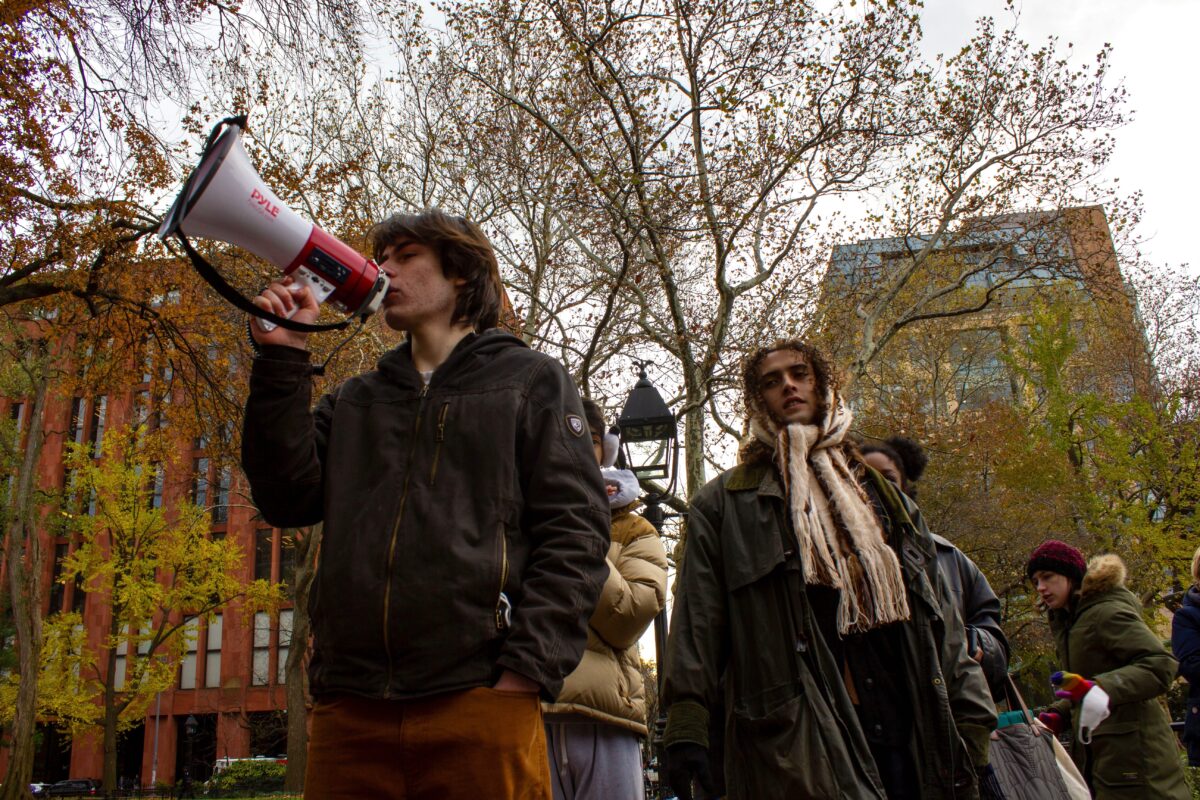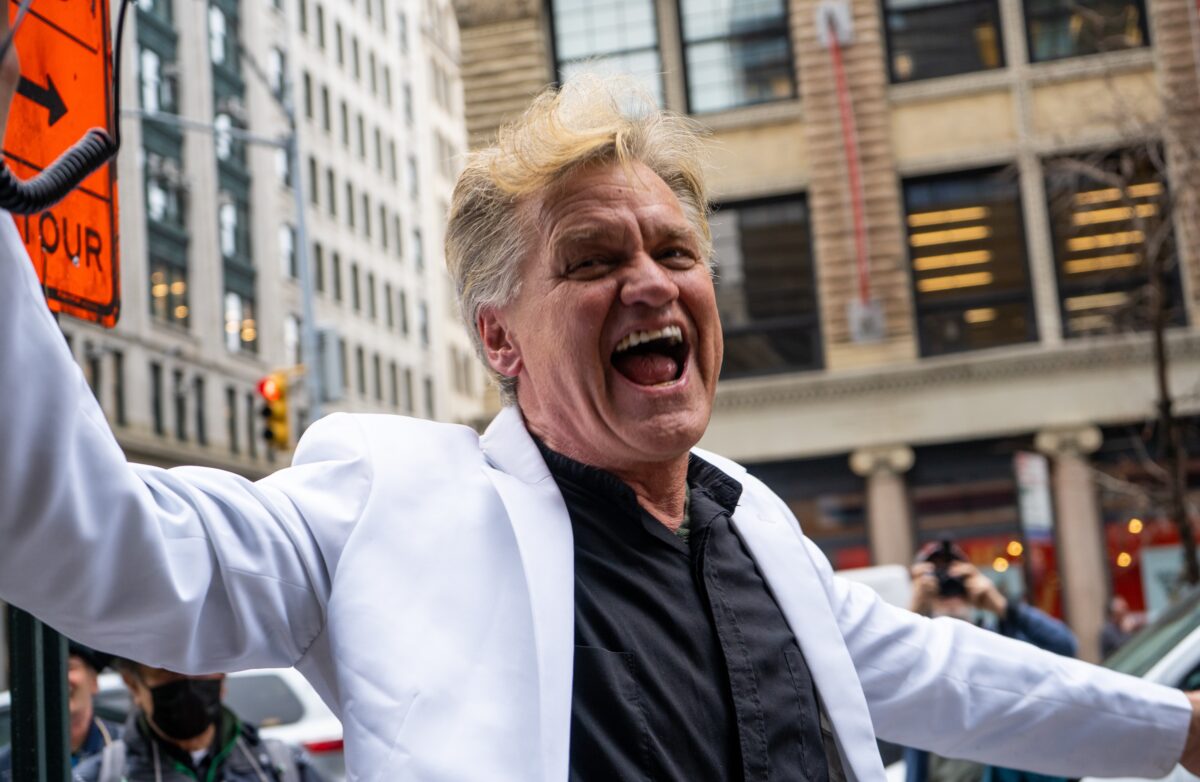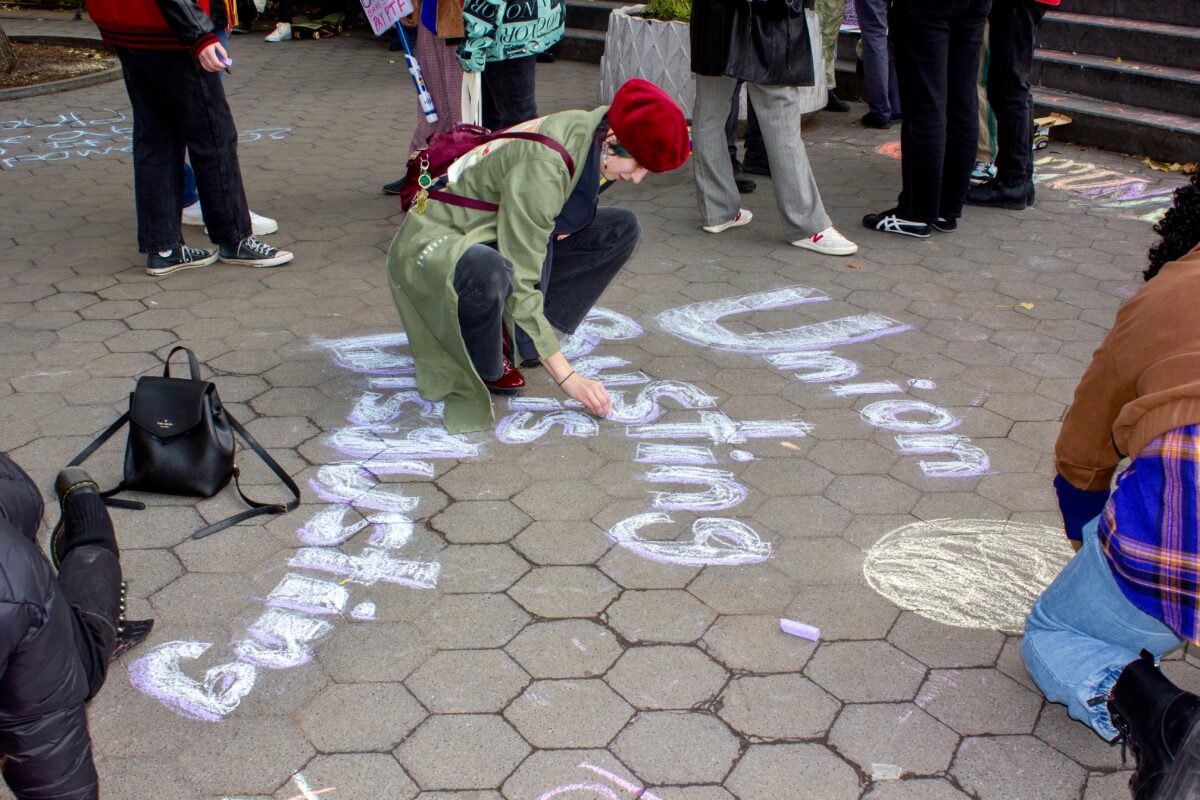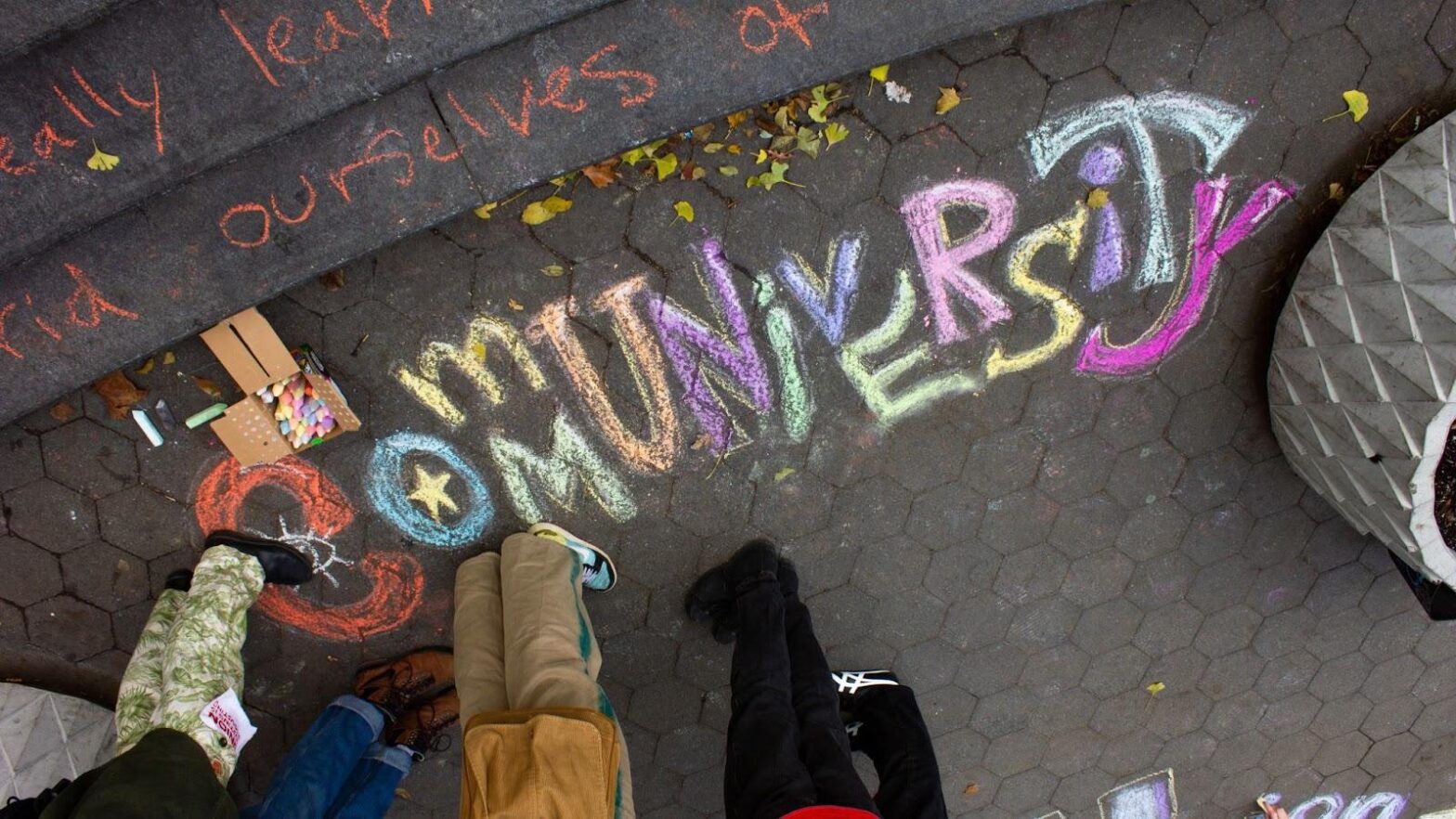With The New School part-time faculty strike settled and fading into the past, Communiveristy, a student-led anti-capitalist group, is preserving the momentum of student activism.
Communiversity was founded as an inherently political group tasked with fighting capitalism by “making the revolution fun,” according to their mission statement.
The group was founded by students attending the picket line and other strike-related activities that began developing friendships and mobilizing around shared political ideals. They became unified in fighting for fair compensation for The New School part-time faculty and began occupying the University Center before the ONS occupation. In Washington Square Park on Nov. 29, 2022, the movement was officially branded as “Communiversity.” The group has consistently held events ever since.
The aim for the group, as founding member and New School student Isabella Cooper explains, is “to have free and accessible spaces for us to open up to the public, open up to The New School, open up to other colleges within our city, to say come and to be a part of this community that we’re building.”
The organization hosts events, meetings, artist spaces, and classes, which are all free and accessible to the public, in hopes that those involved will learn to shed their “alienating tendencies and find refuge in the absurd, the experimental, the educational, and the imaginative.”
Communiversity is a “collective project for those who believe in true radical education,” according to their mission statement. Their goal: “creating radical communities of students across universities, and eventually people across cities, so that we may mobilize more effectively in our fight against capitalism.”
On Feb. 4, Communiversity held its first open mic at the Earth Church, which is currently owned by Billy Talen, or Reverend Billy, a satirical preacher and veteran activist in New York City. Reverend Billy, who once taught performance art classes at The New School, joined the picket line in solidarity with part-time faculty and students and formed a bond with the Communiversity founders.
The event featured over 40 art, music, and poetry performances and drew an audience of around 60-70. According to an Instagram post, Communiversity leaders aimed to unite those with “leftist leanings and artistic ramblings” through community building.
“It was packed,” said Cooper, a second-year Culture and Media student at Eugene Lang College of Liberal Arts. “People outside The New School community came…They walked through the doors. And they felt comfortable and welcomed in the space we had created as a group.”

The idea of Communiversity was sparked by a book about The Cacophony Society, a “culture jamming” organization responsible for helping create events such as Burning Man and Santa Con, explained Travis Buckminster Baldwin (Bucky), a first-year Creative Writing student at Lang and another founding member of Communiversity. “[The Cacophony Society] liked to do events outside the pale of mainstream society.”
“I grew up around a bunch of their members,” Baldwin said. He was inspired by The Cacophony Society’s nonconformist ideals: “fun not being controlled, seeing where you could push the limitations of fun, especially with large masses of people…But the thing I didn’t like about them was that they were apolitical for the most part. I am certainly not apolitical,” he said.
At Communiversity, fun is a core component of “Anti-Alienation classes” the group hosts sporadically. Baldwin explained certain exercises practiced in these classes, “we look into each other’s eyes for two minutes straight. We usually end up saying that we love each other back and forth, and we do all these other sorta weird, silly games that kind of deconstruct the way we interact with each other.”
Radical fun rejects traditional fun activities for college students, like “getting drunk or being on our phones,” Baldwin added. “We’re creating a community that breaks down those very specific barriers and using that to radicalize college students to become leftist,” he said.

As Communiversity continues to grow, Reverend Billy hopes the group will “stay always in discovery [and] stay hungry.” He believes that “if the discoveries that are being made [ at Earth Church] in this room on Saturdays, if these [communiversity members] become better activists as a result — and I think they will — then you are moving to confront very well defended people who don’t know how hypnotized [by capitalism] they are.”
Along with providing Communiversity with a space to gather and hold events, Earth Church is also home to Reverend Billy’s radical performance art and activist group, the “Stop Shopping Choir.” They aim to use music to protest environmental and social destruction caused by mass production and corporatocracy. Directed by activist and artist Savitri D, the “choir” has campaigned against corporations such as Monsanto, Starbucks, Amazon, and, most consistently, JP Morgan Chase. Savitri D is another longtime activist who has cosigned Communiversity.
According to Savitri D, Communiversity members now find themselves developing their own vocabulary, strategies, and tactics. “The best way to be anti-consumerist is to look into someone else’s eye…we have to cultivate that though, we have to do that on purpose, and I feel like that’s what they’re doing,” she said.
Despite its rapid organization and some successes, Communiversity faces fundraising issues. According to Cooper, organizers struggle to finance their events while adhering to their anti-capitalist principles.

The community-led organization will only accept money donated or collectively sourced by members. The group has discussed creative means of fundraising, such as group shows, bake sales, clothing pop-ups, street sales, and busking, to generate income for projects and events.
Communiversity has made it clear that its long-term vision is to expand beyond the boundaries of New York. They want to provide models of their system to other schools where students can create a widespread cultural revolution, and they haven’t slowed down.
Most recently, on March 25, the group held their second open mic, centered around the theme of the French Revolution and the infamous quote speculatively attributed to Marie-Antoinette: “let them eat cake.” As part of the show, Baldwin dressed as the executed queen and imitated her mannerisms for the entirety of the evening; his co-hosts were two fellow Communiveristy members, one dressed as a pastor and the other as Robin Hood. The open mic also featured free cake and zines, again attracting a sizable crowd, with around 40 performers showcasing their poetic and musical talents.
Communiversity’s upcoming events include sex ed trivia on March 31, St. Stupids Day Parade on April 1, a self-defense class on April 15, and another open mic on Earth day, April 22.
Though their goals oppose an overwhelming system, Baldwin remains optimistic about the future. “All I believe in is the goodness of human beings and their ability to continue being good,” Baldwin said. “I believe a lot of good can come from a crisis, and I believe that’s something we should brace for… Organize, don’t mourn.”
Additional Reporting: Olivia Young







